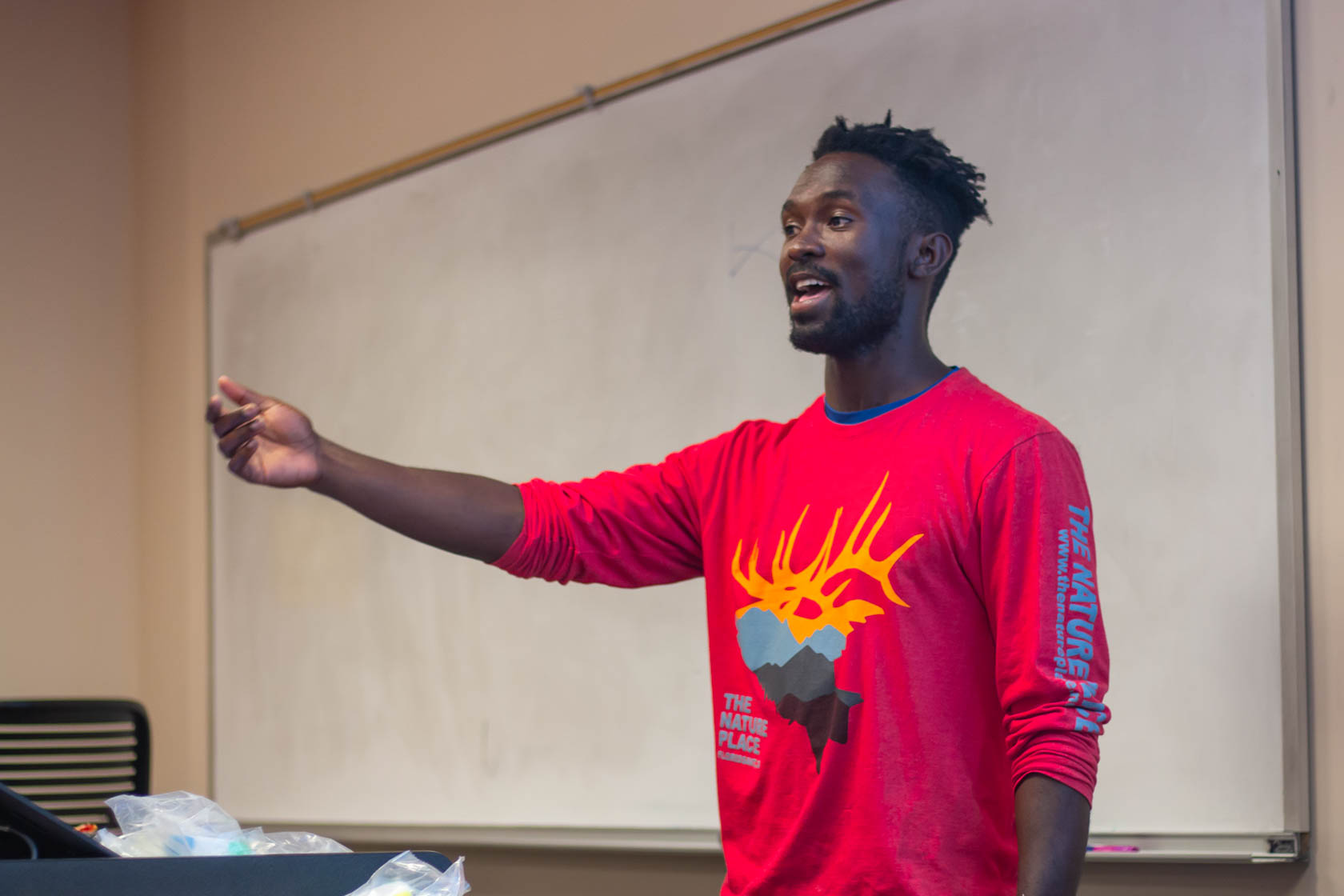The fourth season of “Atlanta” created by Donald Glover premiered on Sept. 15, and lasted for 10 episodes until the season and series finale aired on Nov. 10. on Hulu.
The season depicts the continued exploits of Earnest “Earn” Marks (Donald Glover) and his loved ones, namely his cousin and rising rapper Alfred “Paper Boi” Miles (Brian Tyree Henry), his spaced-out yet deeply profound friend Darius (Lakeith Stanfield) and on-and-off girlfriend Vanessa “Van” Kiefer (Zazie Beetz).
Spoilers ahead.
Much has been said about Glover’s surreal comedy “Atlanta” since its September 2016 premiere: how the show is an insightful portrayal of the modern Black experience as reported by The New Yorker, the depths of its unconventional storytelling as reported by Web Archive and so on.
Despite the show’s largely episodic structure, the one consistent thematic throughline has been a struggle for its characters to find lasting peace (both internally and externally) in a society that constantly takes it away from them. This theme is especially prominent this time around, as coming off the back of season three, the main cast has returned from a European tour in the best spot of their lives, mainly Earn and Paper Boi. The new status quo is a good way to establish a new foundation for the show’s established themes, while returning to the titular city addresses the complaints some had towards the third season.
Episode two highlights this theme for Earn. The episode spends a lot of time with him in therapy, reconciling his new stability in managing Paper Boi’s career with his shocking pettiness towards a TSA officer who racially profiled him. Glover’s performance is solid as someone desperate to abandon the toxic behavior they intensely enjoy, and he’s aided in this by longtime show writer Ibra Ake’s script.
This episode reveals why he was kicked out of Princeton: Earn used his master key as a school resident advisor to enter a white classmate’s room after she failed to return a suit of his before a crucial interview. Besides answering a series-long mystery, the reveal shows how deep-rooted Earn’s need to get one over on those who slight him. This makes him slightly more sympathetic compared to Brooke Bloom’s performance as the perpetually bothersome yet endearingly ambitious Lisa.
Episode three highlights Paper Boi’s struggle with the fickle music industry: realizing the stability of his career rests on finding a “Young White Avatar,” a concept explained by Charles Whitfield’s parody of the modern career guru, Al’s reluctant mentorship of the drug-addled Yodel Kid brings both brief successes before the latter dies of overdose hours before the Grammys. It is a solid exploration of how career success for Black Americans can become constraining, which Glover sums up well in his brief appearance; it is unfortunate that Earn’s side plot similarly brings this idea up before diving into shaggy dog territory.
As has been the case across the show, Hiro Murai is the season’s most prominent director, directing six of its 10 episodes. Murai’s combination of unbridled absurdity and pinpoint narrative intentionality is once again a wonder to behold. The final episode “It Was All a Dream” highlights this, opening with a wonderful music bit by Glover and Henry before transitioning into Darius’ strange foray into the nature of reality and Judge Judy.
Murai’s mastery in maintaining a steady focus on the cast and mind for spatial awareness provides clear context to the show’s absurdity, really highlighting the abstractness of Darius’ deprivation tank experience when combined with Christopher Sprenger’s drenched-in-shadows cinematography.
One of episode ten’s last scenes is particularly notable: after being served poisonous blowfish, Paper Boi tries leaving a Black-owned sushi shop for the nearby Popeye’s before being chewed out by the owner (whose tranquil fury is perfectly captured by Calvin Dutton), who criticizes him for preferring corporate America’s version of the Black cuisine over authentic Black food he is not used to. Darius then bursts in and punches half the store’s employees, before ushering the cast into his pink Maserati. It is this scene that best captures the essence of “Atlanta:” deeply insightful commentary on the Black experience and absurd situations, never in contrast with but rather accentuating the other.
Rating: 9.5/10

